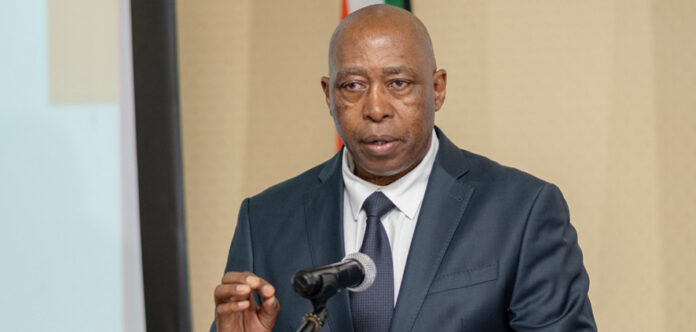A qualified financial accounting professional, Ntombifuthi Sibanyoni, has found her career in jeopardy – all thanks to two of Mpumalanga’s most influential politicians, both serving in the ANC’s top 5 structure within the provincial executive.
From a romantic fallout with one of the politicians to suspension, dismissal and a carousel of court appearances that reached as far as the Constitutional Court, Sibanyoni has spent more than three years fighting to keep her post.
Her ordeal exposes how political influence can warp administrative processes in the City of Mbombela local municipality, which is Mpumalanga’s largest, where even a high court victory seemingly offers no guarantee of job security.
Sibanyoni secured a major win last month when Mbombela High Court Acting Judge Maboku Mangena ruled that her dismissal as chief financial officer (CFO) was unlawful and that the municipality, aided by the provincial department of cooperative governance, human settlements and traditional affairs (CoGHSTA), had acted outside the law.
Yet before the ink on the judgment could dry, the municipali¬ty and the department appealed, pulling her back into another round of litigation.
At the heart of the dispute is whether political leaders can interfere in municipal
appointments.
Mangena found that CoGHSTA MEC Speedy Mashilo – who also serves as the ANC’s provincial deputy chairperson – and the Mbombela council, led by executive mayor Sibongile Makushe-Mazibuko, unlawfully rescinded Sibanyoni’s appointment in April, despite an earlier decision confirming her suitability for the post.
Sibanyoni’s troubles date back to her earlier relationship with former council speaker Mandla Msibi, who later became ANC provincial treasurer and MEC of the same department. The two have a child together.
After they’d been long separated, allegations surfaced that Sibanyoni had misrepresented her qualifications.
Msibi ordered an investigation and flagged that he never concurred with her appointment.
The court found that his subsequent instruction to reverse her appointment had no legal basis.
When Mashilo succeeded Msibi in the portfolio, he withdrew the department’s court challenge – a move that Judge Mangena later interpreted as the point at which the matter should have ended.
However, in April, Mashilo instructed the city to revisit the issue, leading to Sibanyoni’s dismissal and the court battle that followed.
Mangena described the renewed action as “reckless” and “malicious”, warning that the MEC and council had “allowed themselves to be dictated to by unlawful instructions”.
“The removal of the CFO was actuated by malice, sinister motives and a desire to perpetuate illegality,” the judge wrote, ordering the MEC and councillors to pay legal costs on a punitive scale.
Sibanyoni’s High Court triumph follows a string of courtroom disappointments.
In previous attempts to challenge her dismissal, she lost on technical grounds – including the Constitutional Court’s dismissal of her direct-access application for lack of urgency.
For Sibanyoni, the victory is bittersweet. Her reinstatement remains in limbo while the appeal runs its course, and her salary is uncertain.
For Mbombela residents, the case has become a symbol of how political rivalries consume public funds meant for service delivery.
Responding to Sunday World, CoGHSTA spokesperson Freddy Ngobe confirmed that an appeal was underway.
“The department has noted the court ruling,” Ngobe said. “Following the ruling, the City of Mbombela strongly feels that the judge erred substantially in contextualising the facts and applying the law to the facts.
“Subsequently, the City of Mbombela is appealing the judgment as a first respondent, and the department is joining in on the matter.”
Sibanyoni’s affidavit, laced with references to romantic cross wires, personal betrayal and professional sabotage, has turned her career into a legal drama that mirrors the collision of politics and career.
Mangena’s ruling may have cleared her name, but the appeal ensures that the fight – and the spending – continues.



